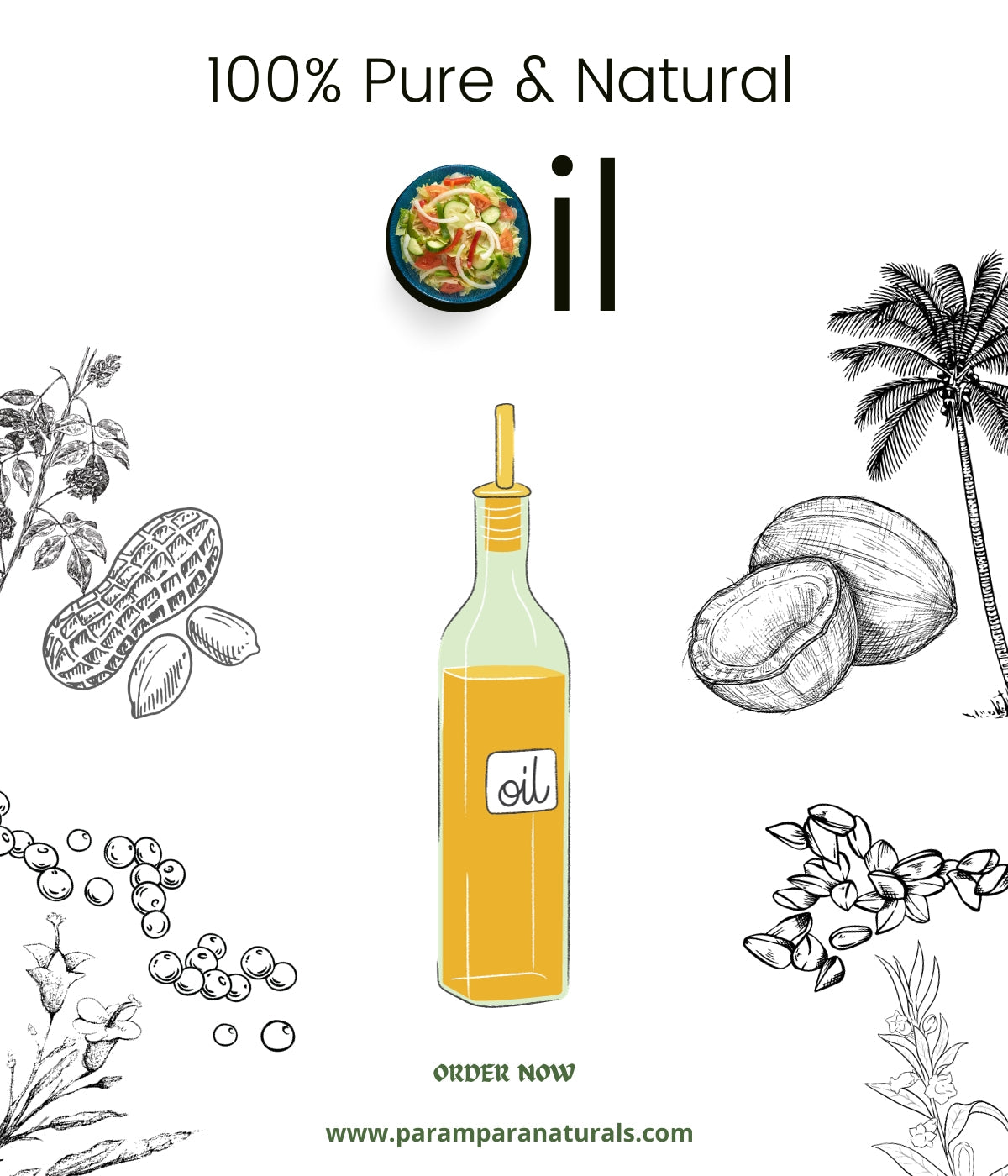Cooking oils are a staple in almost every kitchen, and choosing the right one can significantly impact both the flavor of your food and your health. With an overwhelming variety of oils available on the market, it can be challenging to make an informed decision. Two major categories of cooking oils are refined oils and unrefined oils, which differ not only in their production methods but also in their nutritional content and culinary uses. Understanding these differences is crucial for anyone who wants to make healthier choices in their diet. Let’s dive into the essential aspects of refined and unrefined oils.
What are Refined Oils?
Refined oils, also known as processed oils, undergo a variety of treatments to remove impurities, improve appearance, and extend shelf life. These oils are extracted from seeds, nuts, or fruits through mechanical pressing or chemical extraction methods. After extraction, refined oils are subjected to a series of refining processes, such as bleaching, deodorizing, and filtering. These processes often involve high temperatures and sometimes chemicals to remove unwanted compounds, such as free fatty acids, pigments, and other impurities.
The primary goal of refining is to produce a clear, tasteless, and odorless oil that has a longer shelf life. Popular examples of refined oils include vegetable oil, canola oil, soybean oil, corn oil, groundnut oil, sunflower oil, etc. These oils are widely used for deep frying, sautéing, and other high-heat cooking methods, as they tend to have a higher smoke point than unrefined oils.
What are Unrefined or Cold pressed Oils?
Unrefined oils, on the other hand, retain more of their natural properties, such as flavor, aroma, and nutritional content. These oils are typically extracted using traditional methods like wood pressing, which involve minimal heat and no chemical processing. Because unrefined oils undergo minimal processing, they maintain a higher level of beneficial nutrients, including antioxidants, vitamins, and healthy fatty acids. Unrefined oils can be found under various names like cold pressed oil, wood pressed oil, lakdi ghani oil or kachi ghani oil.
Cold pressed oils, for example, are extracted by pressing oilseeds without heating them at room temperature, which helps preserve their nutrients and natural flavors. Examples of unrefined oils include groundnut oil, coconut oil, mustard oil, flax seed oil, almond oil, sunflower oil and sesame oil.
Unrefined oils are best used in lower-heat cooking, such as drizzling over salads, dipping bread, or light sautéing. Due to their rich nutritional profile and natural flavors, they are often favored in recipes where the taste of the oil is meant to shine through.
The Production Process: Refined vs. Unrefined Oils
The major difference between refined and unrefined oils lies in the method of extraction and processing. Refined oils are typically extracted through mechanical pressing or solvent extraction, followed by high-heat processing that removes any impurities, colors, or odors. This results in an oil that is neutral in taste and odor and can withstand high-heat cooking.
Unrefined oils, on the other hand, are extracted at lower temperatures using more traditional methods like cold pressing, ensuring that the oil retains its full nutritional value. No heat or chemicals are involved, so the oil retains its flavor, aroma, and health-promoting properties, such as antioxidants and essential fatty acids.
Nutritional Differences Between Refined and Unrefined Oils
One of the most significant differences between refined and unrefined oils is their nutritional content. Unrefined oils are packed with beneficial nutrients, such as:
- Vitamins: Unrefined oils often contain vitamins such as Vitamin E, a potent antioxidant that helps protect the body from oxidative stress, and Vitamin K, which supports bone health.
- Antioxidants: The natural antioxidants in unrefined oils, like polyphenols and flavonoids, help fight inflammation and prevent cell damage.
- Essential Fatty Acids: Unrefined oils, particularly those like olive oil or flaxseed oil, are rich in Omega-3 and Omega-6 fatty acids, which support heart health and improve brain function.
Refined oils, however, lose many of these nutrients during the refining process. The high-heat treatment and chemical processes destroy essential vitamins and antioxidants, which results in a product that is lower in nutritional value. Additionally, some refined oils may contain trans fats, which are considered harmful to health when consumed in large amounts.
Culinary Uses: Refined vs. Cold pressed Oils
Refined oils are often chosen for high-heat cooking methods, such as deep frying or grilling, due to their higher smoke points. The smoke point is the temperature at which an oil begins to break down and release harmful compounds.
Cold pressed oils, on the other hand, are better suited for low to medium-heat cooking or raw uses like salad dressings, drizzling over vegetables, or adding to smoothies. Their delicate flavor profiles, perfect for adding rich flavor to dishes along with compromising nutritional value.
Health Considerations: Which Oil is Healthier?
When it comes to health, Cold pressed oils are generally considered a better choice due to their nutrient-dense profile. The antioxidants and healthy fats in unrefined oils help lower inflammation, improve heart health, and provide essential nutrients for overall well-being.
Refined oils, is generally not safe to consume, due to lower nutrients and may be more prone to oxidative damage when exposed to heat for extended periods.
Some refined oils, like soybean oil or corn oil, may contain higher amounts of Omega-6 fatty acids, which can contribute to an imbalance in the body's essential fatty acid ratio when consumed excessively.
Conclusion
In conclusion, upon understanding their differences is essential for making healthier choices. Cold pressed oils are more nutrient-rich, flavorful, and healthier overall, especially when used in lower-heat cooking or raw applications.
It is recommended to avoid use of refined oils as those are filled with chemical processing, not healthy and nutritive for family


